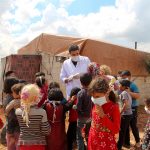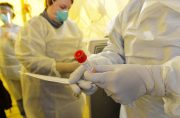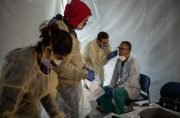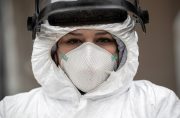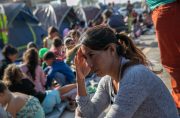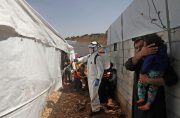PHR and our global network of health experts are committed to providing a science-driven perspective, guidance, and tools for health practitioners, human rights advocates, policy makers, and others who are contributing to effective responses to the COVID-19 pandemic.
Under Threat for Speaking Out: What Health Care Workers Need to Know
As the COVID-19 pandemic overwhelms medical institutions, reports have been growing about health care workers (HCWs) who have been subjected to retaliation for speaking out about Personal Protective Equipment (PPE) shortages, dangerous hospital conditions, inconsistent guidance, and even for bringing their own PPE to work. As a health care professional, you have a range of supports and protections, as well as the ability to defend yourself and make changes at your institution. PHR has compiled suggestions on what should be considered. Read our guidance here.
Medical Associations Speak Out
Across the United States and the world, health and medical associations are working in coalition to advocate for a science-driven and rights-based response to COVID-19. On April 6, 2020, 11 leading U.S. health professionals associations – representing tens of thousands of physicians, nurses, and other health professionals – delivered a collective demand to protect health workers’ safety and voices amid the COVID-19 pandemic. Read the statement here.
PHR Asylum Network Resources
The health professionals in PHR’s Asylum Network continue to provide critical support to individuals seeking asylum in the United States. Below are resources produced for clinicians that offer guidance on how to effectively conduct remote evaluations.
Best Practices for Remote Physical Asylum Evaluations with Dr. Ranit Mishori and Dr. Deborah Ottenheimer
The PHR Asylum Network held a webinar on led by experts on best tips and practices for clinicians undertaking remote physical forensic evaluations for asylum seekers.
Best Practices for Remote Psychological Asylum Evaluations with Dr. Joanne Ahola, Dr. Mihaela Dranoff and Susan Girardo Roy
The PHR Asylum Network held a webinar and Q&A led by experts on best practices in tele-evaluations for asylum seekers. Due to the COVID-19 pandemic, PHR has encouraged its Asylum Network members to conduct remote psychological evaluations using a video-enabled platform, if the client is comfortable with the set-up.
Best Practices in Writing Expert Declarations with Dr. Ranit Mishori and Mark Rosenbaum
The PHR Asylum Network held a webinar on best practices for clinicians who are writing expert declarations for lawsuits, using examples from recent lawsuits against U.S. Immigration and Customs Enforcement in the context of the COVID-19 pandemic.
Ten Guiding Principles for Writing Medical-Legal Documents
Clinicians are often asked to write affidavits, expert declarations, supplemental declarations, and Amicus briefs on behalf of individuals involved in the justice or immigration system. Here are 10 guiding principles.

